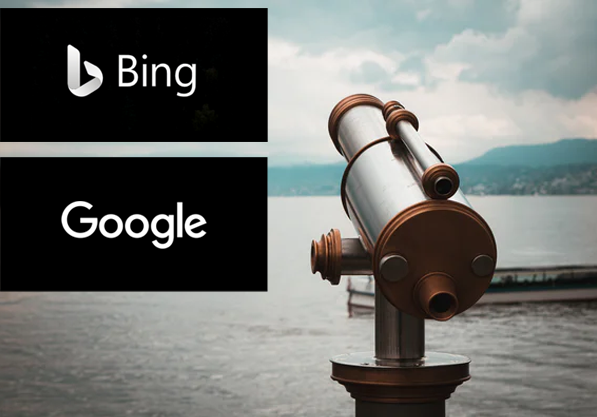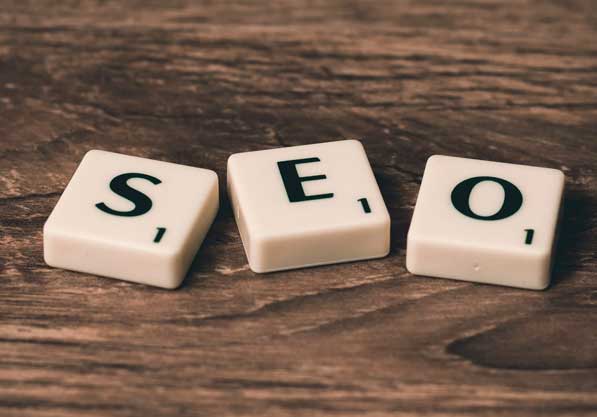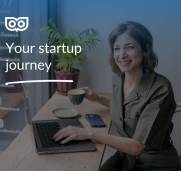
How to optimise the content on your website for both Bing and Google
Google dominates the majority of the search engine market.
Bing has always been in Google’s shadows.
Ignored.
Made fun of.
And never given much credit.
But Bing isn’t dead, even in 2021. And neither will it die in the coming years.
That’s because you (and many others) still use Bing.
Ever asked Cortana, Microsoft’s assistant, serving you on your Window’s powered laptop or desktop to find something for you?
Ever asked Alexa (Amazon’s voice assistant to find something?
They never Googled a thing for you. They just Bing it.
So, hello Bing users.
Big Reveal:
- Bing is the search engine used by Microsoft on 1.5 billion devices.
- Bing owns 36% of the US desktop search market.
- Alexa puts Bing in 100 million households.
Now your clients want to rank on Bing too?
And, of course, you cannot skip website content optimisation for Google either. (Google is still the OG of the market, you see.)
So, how do you optimise web content for both Bing and Google?
If you have expertise in Google optimisation but are a noob when it comes to Bing, you can use white label agency services for that.
DIYers, just read on and find out.
Is optimisation for Bing the same as optimisation for Google?
Yes.
And no.
Bing and Google are both search engines. And some of their ranking factors are similar.
Keywords, backlinks, social shares, and content quality remain the primary factors that these search engines for ranking content.
So the basics remain the same.
However, both these search engines lay different levels of emphasis on different factors.
So optimising your website content for Google won’t mean your content is also optimised for Bing.
You’ll have to take a few extra steps.
Similarly, if you optimise your site for Bing first, you’ll need to walk a couple of extra miles to optimise it for Google.
Will optimising for Bing interfere with your content optimisation for Google?
You know how to optimise your site for Bing and Google? Yes? You can ensure the optimisation measures don’t interfere with each other.
Aren’t you too sure of your skills? Avail white labeling services to ensure you don’t mess up optimisation for one or both search engines.
Basic optimisation: For Bing and Google Both
Some basic site optimisation steps that are mentioned in both Bing and Google Webmaster Guidelines:
- Sitemaps
- Submit your website for indexing
- Internal and external links
- Proper use of redirects as and when needed
- Robots.txt file
- Title and meta tags
- Alt tags
- Canonical tags
- Schema Markup, and
- Quick load speed
Content optimisation steps for Bing: what do to other than basic Google optimisation
Step 1: Start with your usual web content optimisation for Google.
Step 2: Follow these additional steps to optimise the content for Bing as well.
Get more backlinks
Google and Bing both take into account backlinks for ranking content.
Thus, trust remains an important factor.
Backlinks indicate search engines that users found your content useful, that’s why they shared it with other users, and that’s how you got these backlinks.
Now, both the quality and quantity of backlinks are considered.
So your content should have backlinks from:
- Many other pages on the web, and
- These should be high authority pages.
While Google lays more emphasis on the quality of backlinks, Bing is more quantity-oriented.
Got the quality backlinks you needed for Google?
Now keep replicating your efforts.
As the numbers swell, your Bing rankings will rise.

Exact match keyword use
Google performs a semantic search, which is dependent on AI and ML, like RankBrain. Search intent and contextual clues are at the heart of Google’s keyword match protocol. Thus, you don’t need an exact match to rank on Google.
If Google understands that your web content talks about ‘digital marketing in XYZ location,’ it will rank your page for the keyword ‘XYZ digital marketing’ too. That makes Google extremely accurate in its ranking mechanism.
That’s not the case with Bing.
Bing uses exact keyword matches. So, to rank for XYZ digital marketing, you need that written on your page too.
Here’s how to optimise for exact match keywords in Bing:
- Use the keyword as it is on your website.
- Include the keyword in your domain.
- Meta title, meta description, and H1 or H2 headings should also have the exact keyword.
- Target only 2 (or a maximum of 3) keywords on a single page.
- Don’t resort to keyword stuffing, though.
For Google, this isn’t necessary. You just have to focus on topical relevance during keyword optimisation.
More media onsite
Google is a text-heavy search engine. It can understand and comprehend text accurately. However, it cannot read multimedia content nearly as efficiently as Bing.
So you would need alt tags and descriptions for images, videos, and other multimedia content to optimise it for Google. But not for Bing.
For Bing, you just need more multimedia content. That’s also because Bing is a pioneer in image search. So it understands images and videos. And positively rewards multimedia-rich sites in search.
Also, Flash websites are practically invisible to Google. Bing understands and ranks them just fine.
Note: Use multimedia content to optimise your site for Bing, but don’t overdo it. It would eventually slow down your website and harm your ranking on both Bing and Google.
Social Signals
Google has always denied the role of social signals in rankings. (Though, it has been seen that it does play a small role.)
But Bing is of the opposite opinion.
For Bing, social signals are an important ranking factor. According to Bing, social signals mean you are influential, your content gets shared and valued more, and thus, it would affect your ranking in the long run.
With that being said, make sure your website content gets a lot of likes, comments, tweets, and shares on social media.
Your social media team should be able to help you with that. Try to go viral on social media. It will help you increase your current engagement levels overnight. And also help you slowly and steadily up your search engine rankings. The results would be visible more evidently on Bing but also noticeable on Google.
Use of Meta Keywords
In 2009, Google said it has been disregarding meta keywords for years.
So, for most SEOs, these keywords that sit separated by commas, somewhere in the HTML source code of a web page, are officially dead.
But filling the meta keyword and meta description columns while optimising your website would definitely improve your Bing rankings.
It would take just a couple of extra minutes. And the results? They would be worth the time.
However, don’t overstuff meta keywords.
Using your target keyword, its misspellings, and related keywords is fine.
Adding unrelated or remotely related keywords is abusing the opportunity.
The abuse of meta keywords by black hat SEOs was what made Google disregard them. Don’t push Bing over the edge.
Get ready to leverage both Bing and Google
Knowing how you can optimise your website content for Bing and actually being able to do it are two different things.
You might have expertise in Google search optimisation. But Bing optimisation? That’s a craft that not many have mastered.
Instead of trying to do it yourself and messing this up for your clients (and subsequently for yourself), hire a white label agency.
Uplers is a white label digital marketing agency with both Google and Bing experts on board. Their experts can do more than just optimise your agency client’s website content for one search engine. They know how to affordably strike a balance between Google and Bing optimisation and get traffic from both ends.
Contact them now to bank on their experience and expertise and get rankings on both Bing and Google.
Can you please add below author bio at the end of my article.
Author Bio:
Sheryl is the Senior Marketing Specialist at Uplers. She has great experience in designing well-defined user journeys across the digital marketing domain. She leverages her digital marketing expertise to help businesses draw significant ROIs.


